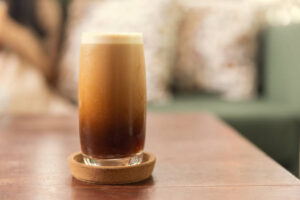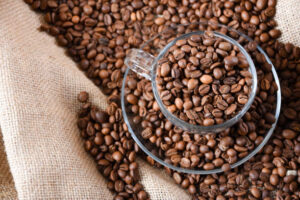There’s nothing quite like the invigorating aroma of freshly brewed coffee wafting through your home in the morning. Yet, achieving that perfect cup can sometimes feel like an elusive art. For many, the question of how many teaspoons of coffee are needed for 12 cups remains a mystery. This guide aims to demystify the process, ensuring you start your day with a rich and satisfying brew.
The Importance of Getting It Right
Brewing coffee is more than just a morning ritual; it’s a sensory experience. The right balance of coffee grounds to water can make a significant difference in flavor, aroma, and overall enjoyment. Too much coffee can lead to a bitter, overpowering brew, while too little can result in a weak, insipid drink. Understanding the correct measurements is key to unlocking the true potential of your coffee.
What Is a Cup of Coffee?
Before we jump into the specifics, it’s crucial to understand what we mean by a “cup” of coffee. In the coffee world, a standard cup is typically 6 ounces of water. This measurement can vary slightly depending on your coffee maker, but for the sake of consistency, we’ll use this standard.
The Golden Ratio
The coffee-to-water ratio is often referred to as the “Golden Ratio.” This is a universally accepted guideline to help achieve the perfect balance. The Golden Ratio suggests using 1 to 2 tablespoons of ground coffee for every 6 ounces of water. This ratio can be adjusted based on personal preference, but it serves as a reliable starting point.
Measuring Coffee for 12 Cups
When brewing 12 cups of coffee, you’ll need to scale up your measurements accordingly. Since one cup is 6 ounces, 12 cups equate to 72 ounces of water. Using the Golden Ratio, you’ll need approximately 12 to 24 tablespoons of ground coffee for 72 ounces of water.
Teaspoons vs. Tablespoons
It’s worth noting that there are 3 teaspoons in a tablespoon. Therefore, if you prefer to measure your coffee using teaspoons, you’ll need between 36 and 72 teaspoons for 12 cups of coffee.
Factors That Affect Coffee Strength
Several factors can influence the strength and flavor of your coffee, including the grind size, type of coffee beans, and brewing time. Understanding these elements can help you fine-tune your measurements for a consistently delicious cup.
Grind Size
The grind size can significantly impact the extraction process. Finer grinds will extract more quickly, often requiring less brewing time, while coarser grinds take longer. Adjusting the grind size can help you achieve the desired strength and flavor.
Type of Coffee Beans
Different types of coffee beans have unique flavor profiles and strengths. Arabica beans are known for their smooth, mild flavor, while Robusta beans are stronger and more bitter. Your choice of beans will influence the amount of coffee you need.
Brewing Time
The brewing time also plays a crucial role in coffee strength. Over-extraction can lead to bitterness, while under-extraction can result in a weak brew. Experimenting with brewing times can help you find the perfect balance.
Tips for Consistent Measurements
Achieving consistency in your coffee measurements can make a noticeable difference in flavor. Here are some tips to help you get it right every time.
Use a Coffee Scoop
Investing in a coffee scoop can make measuring your grounds easier and more accurate. A standard coffee scoop typically holds 1 tablespoon, making it simple to follow the Golden Ratio.
Pre-Measuring Your Coffee
Consider pre-measuring your coffee grounds the night before. This can save time in the morning and ensure you use the correct amount every time.
Experiment and Adjust
Don’t be afraid to experiment with different measurements. Start with the Golden Ratio and adjust based on your taste preferences. Keep a journal to track your adjustments and find the perfect balance.
Common Mistakes to Avoid
Even with the best intentions, it’s easy to make mistakes when brewing coffee. Here are some common pitfalls to watch out for.
Overloading the Coffee Maker
Adding too much coffee to your coffee maker can lead to overflow and a bitter brew. Stick to the recommended measurements to avoid this issue.
Using Stale Coffee Beans
Freshness matters when it comes to coffee. Using stale beans can result in a dull, lackluster brew. Always use freshly ground coffee beans for the best flavor.
Ignoring Water Quality
The quality of your water can significantly impact the taste of your coffee. Using filtered water can help you achieve a cleaner, more flavorful brew.
Enhancing Your Coffee Experience
Brewing the perfect cup of coffee is just the beginning. There are several ways you can enhance your coffee experience and take it to the next level.
Try Different Brewing Methods
Exploring different brewing methods, such as French press, pour-over, or espresso, can introduce you to new flavors and techniques. Each method has its unique characteristics and can offer a different coffee experience.
Experiment with Coffee Additives
Adding a touch of cinnamon, vanilla, or even a dash of salt can elevate the flavor of your coffee. Experimenting with different additives can help you discover new and exciting flavor combinations.
Join a Coffee Community
Joining a coffee community can provide valuable insights, tips, and inspiration for your coffee journey. Engaging with fellow coffee enthusiasts can enhance your appreciation and knowledge of the art of brewing.
Conclusion
Brewing the perfect cup of coffee for 12 cups doesn’t have to be a daunting task. By understanding the importance of measurements, experimenting with different variables, and avoiding common mistakes, you can achieve a consistently delicious brew every time. Remember to use the Golden Ratio as a starting point and adjust based on your preferences. Happy brewing!
FAQs
How many teaspoons of coffee should I use for 12 cups?
For 12 cups of coffee, you should use between 36 and 72 teaspoons of ground coffee, depending on your taste preferences and the strength of coffee you desire.
What is the Golden Ratio for coffee?
The Golden Ratio for coffee is 1 to 2 tablespoons of ground coffee for every 6 ounces of water. This ratio can be adjusted based on personal preference.
Does the type of coffee bean affect the measurement?
Yes, the type of coffee bean can affect the measurement. Different beans have unique flavor profiles and strengths, which can influence the amount of coffee needed for the desired taste. Arabica beans are smoother and milder, while Robusta beans are stronger and more bitter.
How does grind size impact coffee strength?
Grind size significantly impacts the extraction process. Finer grinds extract more quickly and may require less brewing time, while coarser grinds take longer. Adjusting the grind size can help achieve the desired strength and flavor.






